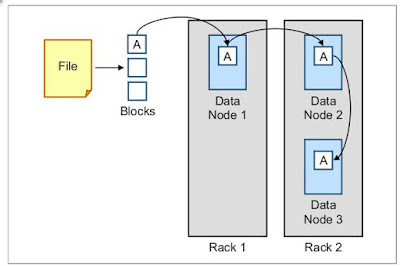Agentic AI in Healthcare: Transforming Big Data for Patient Outcomes
Healthcare has always been a data-rich field, but the rapid growth of electronic health records (EHRs), diagnostic imaging, wearable devices, and genomics has created an overwhelming flood of information. Traditional systems often fail to process, analyze, and interpret such massive datasets in real time. This is where Agentic AI—autonomous, goal-driven, and adaptive AI systems—emerges as a transformative force in healthcare.
By harnessing the power of big data, Agentic AI is reshaping how medical professionals deliver care, improving efficiency, accuracy, and most importantly, patient outcomes.
1. The Convergence of Big Data and Agentic AI in Healthcare
Big data in healthcare includes structured information (EHRs, lab results), semi-structured data (clinical notes), and unstructured data (medical images, genomics, wearable sensor streams). The scale is massive, but traditional analytics often struggle with speed, accuracy, and contextual relevance.
Agentic AI introduces autonomous decision-making and adaptability into this environment. Instead of relying on static rules, Agentic AI agents actively learn from evolving datasets, uncover hidden patterns, and suggest context-sensitive actions to healthcare providers.
2. Enhancing Diagnostics and Early Detection
One of the greatest strengths of Agentic AI is its capacity for predictive diagnostics.
-
Medical Imaging: AI agents can autonomously detect anomalies in X-rays, MRIs, or CT scans with higher precision than many human radiologists, flagging potential tumors or cardiovascular risks earlier.
-
Genomic Data Analysis: By analyzing massive DNA datasets, Agentic AI can predict genetic predispositions to diseases, allowing preventive interventions.
-
Wearable Devices: Continuous monitoring of heart rate, blood glucose, and oxygen saturation generates real-time data. AI agents autonomously interpret this information, alerting clinicians or patients when anomalies occur.
This proactive, predictive approach reduces hospital readmissions and supports preventive care.
3. Personalized Treatment Plans
Every patient is unique, and a “one-size-fits-all” treatment often falls short. Agentic AI enables precision medicine by tailoring interventions based on a patient’s genetics, lifestyle, and medical history.
-
For oncology, AI can recommend chemotherapy regimens most likely to succeed for an individual patient.
-
For chronic conditions like diabetes, Agentic AI agents can continuously adjust treatment recommendations by integrating data from wearables, diet logs, and lab results.
This dynamic personalization ensures better adherence and more effective outcomes.
4. Predictive Analytics for Patient Outcomes
Agentic AI thrives in forecasting patient outcomes through big data analytics.
-
Predicting risk of sepsis in ICU patients hours before symptoms appear.
-
Anticipating recovery times post-surgery using historical case data.
-
Identifying patients at risk of hospital readmission and suggesting preventive measures.
By predicting health trajectories, AI empowers clinicians to intervene early, improving survival rates and reducing costs.
5. Optimizing Hospital Operations
Beyond direct patient care, Agentic AI also streamlines healthcare operations:
-
Resource Allocation: AI agents predict patient inflow and optimize staffing.
-
Supply Chain: Automated systems forecast demand for critical drugs and equipment.
-
Workflow Automation: Reducing paperwork and automating administrative tasks allow doctors to focus on patient interactions.
Hospitals benefit from reduced operational costs, while patients receive faster, more coordinated care.
6. Ethical and Regulatory Considerations
While Agentic AI offers enormous potential, healthcare is a sensitive domain that demands caution. Challenges include:
-
Data Privacy: Patient data must remain secure under HIPAA and GDPR regulations.
-
Bias and Fairness: AI trained on biased datasets may perpetuate health inequalities.
-
Transparency: Black-box AI decisions can be difficult for patients and doctors to trust without explainability.
Responsible deployment of Agentic AI requires robust governance frameworks, explainable AI models, and patient-centered design.
7. The Future of Agentic AI in Healthcare
The future points toward integrated, autonomous healthcare ecosystems where AI collaborates seamlessly with clinicians. Emerging areas include:
-
AI-driven drug discovery to accelerate new treatments.
-
Telemedicine AI agents providing 24/7 remote consultation.
-
Population health management, predicting public health crises using big data trends.
Ultimately, Agentic AI has the potential not only to improve patient outcomes but to fundamentally redefine the delivery of healthcare.
Conclusion
Agentic AI represents a paradigm shift in healthcare, turning overwhelming big data into actionable intelligence. By enabling early detection, personalized treatments, predictive analytics, and operational efficiency, Agentic AI strengthens both preventive and curative care. If deployed responsibly, it will be the cornerstone of a healthcare future that is proactive, precise, and patient-centric.





Comments
Post a Comment